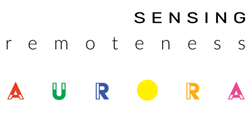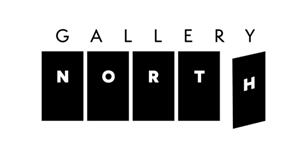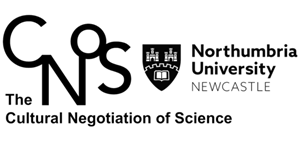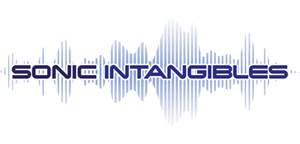-
Study
-
Quick Links
- Open Days & Events
- Real-World Learning
- Unlock Your Potential
- Tuition Fees, Funding & Scholarships
- Real World Learning
-
Undergraduate
- Application Guides
- UCAS Exhibitions
- Extended Degrees
- School & College Outreach
- Information for Parents
-
Postgraduate
- Application Guide
- Postgraduate Research Degrees
- Flexible Learning
- Change Direction
- Register your Interest
-
Student Life
- Students' Union
- The Hub - Student Blog
- Accommodation
- Northumbria Sport
- Support for Students
-
Learning Experience
- Real-World Learning
- Research-enriched learning
- Graduate Futures
- The Business Clinic
- Study Abroad
-
-
International
International
Northumbria’s global footprint touches every continent across the world, through our global partnerships across 17 institutions in 10 countries, to our 277,000 strong alumni community and 150 recruitment partners – we prepare our students for the challenges of tomorrow. Discover more about how to join Northumbria’s global family or our partnerships.
View our Global Footprint-
Quick Links
- Course Search
- Undergraduate Study
- Postgraduate Study
- Information for Parents
- London Campus
- Northumbria Pathway
- Cost of Living
- Sign up for Information
-
International Students
- Information for International Students
- Northumbria and your Country
- International Events
- Application Guide
- Entry Requirements and Education Country Agents
- Global Offices and Regional Teams
- English Requirements
- English Language Centre
- International student support
- Cost of Living
-
International Fees and Funding
- International Undergraduate Fees
- International Undergraduate Funding
- International Masters Fees
- International Masters Funding
- International Postgraduate Research Fees
- International Postgraduate Research Funding
- Useful Financial Information
-
International Partners
- Agent and Representatives Network
- Global Partnerships
- Global Community
-
International Mobility
- Study Abroad
- Information for Incoming Exchange Students
-
-
Business
Business
The world is changing faster than ever before. The future is there to be won by organisations who find ways to turn today's possibilities into tomorrows competitive edge. In a connected world, collaboration can be the key to success.
More on our Business Services-
Business Quick Links
- Contact Us
- Business Events
- Research and Consultancy
- Education and Training
- Workforce Development Courses
- Join our mailing list
-
Education and Training
- Higher and Degree Apprenticeships
- Continuing Professional Development
- Apprenticeship Fees & Funding
- Apprenticeship FAQs
- How to Develop an Apprentice
- Apprenticeship Vacancies
- Enquire Now
-
Research and Consultancy
- Space
- Energy
- AI Futures
- CHASE: Centre for Health and Social Equity
- NESST
-
-
Research
Research
Northumbria is a research-rich, business-focused, professional university with a global reputation for academic quality. We conduct ground-breaking research that is responsive to the science & technology, health & well being, economic and social and arts & cultural needs for the communities
Discover more about our Research-
Quick Links
- Research Peaks of Excellence
- Academic Departments
- Research Staff
- Postgraduate Research Studentships
- Research Events
-
Research at Northumbria
- Interdisciplinary Research Themes
- Research Impact
- REF
- Partners and Collaborators
-
Support for Researchers
- Research and Innovation Services Staff
- Researcher Development and Training
- Ethics, Integrity, and Trusted Research
- University Library
- Vice Chancellors Fellows
-
Research Degrees
- Postgraduate Research Overview
- Doctoral Training Partnerships and Centres
- Academic Departments
-
Research Culture
- Research Culture
- Research Culture Action Plan
- Concordats and Commitments
-
-
About Us
-
About Northumbria
- Our Strategy
- Our Staff
- Our Schools
- Place and Partnerships
- Leadership & Governance
- University Services
- Northumbria History
- Contact us
- Online Shop
-
-
Alumni
Alumni
Northumbria University is renowned for the calibre of its business-ready graduates. Our alumni network has over 253,000 graduates based in 178 countries worldwide in a range of sectors, our alumni are making a real impact on the world.
Our Alumni - Work For Us
Latest News and Features
More events
Upcoming events
-
On Weaving
Gallery North

EY Degree Apprenticeship Information Event
Northumbria University
-

Next Stop Northumbria
The Queens Hotel
-

Launch of the Northern Interprofessional Education Strategy
Northumbria University
-


 The immersiveinstallation Aurora brings these cultural, natural and techno-scientific contexts together by using the extreme aurora event of 10/11 May 2024 as a device to reveal the complex interdependence of the spheres that together form our contemporary relationship with space and space weather. Data from three international space probes — Solar Orbiter, ACE (Advanced Composition Explorer) and GOES (Geostationary Operational Environmental Satellites) — are used within the installation to create a complex environment that can be experienced both as sound and as vibration, felt via the gallery’s architecture and seating as well as within the viewer/participant’s body.
The immersiveinstallation Aurora brings these cultural, natural and techno-scientific contexts together by using the extreme aurora event of 10/11 May 2024 as a device to reveal the complex interdependence of the spheres that together form our contemporary relationship with space and space weather. Data from three international space probes — Solar Orbiter, ACE (Advanced Composition Explorer) and GOES (Geostationary Operational Environmental Satellites) — are used within the installation to create a complex environment that can be experienced both as sound and as vibration, felt via the gallery’s architecture and seating as well as within the viewer/participant’s body.  One ofthe key questions the project explores is how we might ‘experience’ space weather more directly and, in so doing, extend beyond our terrestrial, anthropocentric understanding into broader astro-ecologies that consider other natural entities and phenomena in relation to technology. If this is possible, might it shift the dial in terms of public interest in, and connection to, both the majesty and the potential jeopardy of space weather and the existential risk it could pose to our planetary futures?
One ofthe key questions the project explores is how we might ‘experience’ space weather more directly and, in so doing, extend beyond our terrestrial, anthropocentric understanding into broader astro-ecologies that consider other natural entities and phenomena in relation to technology. If this is possible, might it shift the dial in terms of public interest in, and connection to, both the majesty and the potential jeopardy of space weather and the existential risk it could pose to our planetary futures?  Aurora is the first public manifestation of experimental research from Sensing Remoteness — a recently formed interdisciplinary group that brings together researchers from The Cultural Negotiation of Science group (CNoS), the Space IDRT at Northumbria University, and Newcastle University. Current members who have contributed to Aurora are: Patrick Antolin (Plasma Physics), Jorge Boehringer (Sound Art/Sonic Intangibles, Newcastle University), Fiona Crisp (Arts/CNoS), Timothy Duckenfield (Plasma Physics), Luis Guzmán (CNoS/Space IDRT), Daniel Ratliff (Mathematics/Sonic Intangibles), Paul Vickers (Computer Science/Sonic Intangibles), Clare Watt (Space weather/Plasma Physics) and Steph Yardley (Plasma Physics).
Aurora is the first public manifestation of experimental research from Sensing Remoteness — a recently formed interdisciplinary group that brings together researchers from The Cultural Negotiation of Science group (CNoS), the Space IDRT at Northumbria University, and Newcastle University. Current members who have contributed to Aurora are: Patrick Antolin (Plasma Physics), Jorge Boehringer (Sound Art/Sonic Intangibles, Newcastle University), Fiona Crisp (Arts/CNoS), Timothy Duckenfield (Plasma Physics), Luis Guzmán (CNoS/Space IDRT), Daniel Ratliff (Mathematics/Sonic Intangibles), Paul Vickers (Computer Science/Sonic Intangibles), Clare Watt (Space weather/Plasma Physics) and Steph Yardley (Plasma Physics). 






